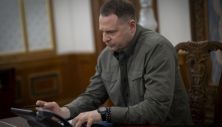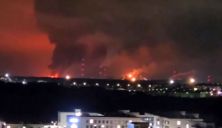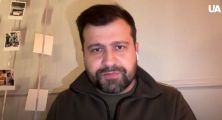Russia is actively moving into the repressive 1930s. This opinion was expressed by Russian journalist and sociologist Igor Yakovenko on the FREEDOM TV channel.
He believes that the screws in Russia have already been tightened quite seriously, but there is still room for improvement, for example, towards the North Korean scenario.
“I will just give one of the most striking examples. The girl wrote a pro-Ukrainian post, but rather not even pro-Ukrainian, but simply anti-war. In this regard, her father was arrested, and the girl was sent to an orphanage. Well, if you look at the situation so simply, it seems to me that it really is already such a monstrous picture, this is the degree of such absolutely incredible, I would not say insanity, but this crime is so fantastic. The child wrote that she was for peace, she was against war. The father is arrested. A girl in an orphanage. Here you are, please, the level of pressure that we have now. This struck me much more than the long sentences for adults. That is, just out of the blue, in passing, they crippled the fate of the child, broke the family, ”said Yakovenko.
He noted that the fundamental difference from the Stalinist repressions is that such measures are not yet applied totally.
“But, basically, it’s becoming more and more mainstream. So the movement towards the 30s, it exists, ”the journalist emphasized.
In his opinion, Russia imitates a return to the Soviet Union, while, unlike the USSR, in the Russian Federation there is no ideology and no party, there are no social guarantees for citizens, and there is discord within the ruling groups.
“There is no rollback to the Soviet Union, in fact, there was a rapid fascisization of society. And what we have in Russia today is, of course, not the Soviet Union at all, it is fascism … Perhaps one of the ugliest forms of fascism is this “Putin’s Reich,” Yakovenko is convinced.
He also believes that Russian society as such does not exist – there is a population, a collection of individuals who are united by a common citizenship and a common territory on which they live. This is due to the fact that the Russians do not have a reflection on the future associated with the change of power, Yakovenko noted.













